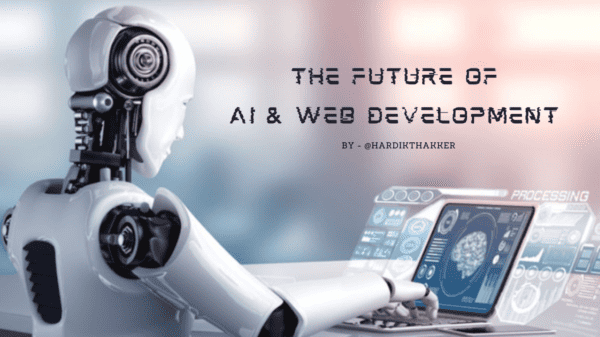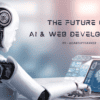In the last decade, nothing has begun to change business quite like Artificial Intelligence. What used to be science fiction is now a straight fact, as organizations the world over have begun leveraging AI for many unrelated processes.
The advantage of AI is that simple, rote tasks can be automated, freeing up flesh-and-blood humans to take on more creative and innovative tasks. In this way, everything is looking at becoming more efficient.
Consider the standard analogue recruitment process. According to Shannon Williams writing for LucidChart, these are just some of the steps associated with the review of applicants:
- Comparing the candidate’s resume and other materials to the written job description. This includes manually looking at and ensuring that prior job experience and skills line up with the essential requirements.
- Looking at the time spent in previous roles, checking to see if a candidate’s history demonstrates progression and drive, or identifying a tendency to bounce from job to job.
- Conducting screenings. Before bringing someone in for an interview, screening questions can help to determine if the prospect is a right fit.
All of those steps are time-consuming, and require mechanical — not creative — skills to accomplish. AI has already begun simplifying this process.
“Many companies are beginning to implement AI before they even hire workers, as they are using AI personnel management systems to help them find the best IT professionals for the jobs,” according to University of Alabama’s online resources.
They cite SAP’s Chief Innovation Officer Juergen Mueller, who told the Wall Street Journal that “Recruiters spend 60 per cent of their time reading CVs.”
“Why should a person read 300 resumes if a machine can propose the top 10?” he asks.
Shaping the Future of Business
With the type of power illustrated above, it’s easy to see how AI is influencing so many disparate industries in such a disruptive way. Soon, businesses that aren’t harnessing the power of AI in their day-to-day operations will become the outliers, left behind in the ever-evolving world of businesses technology.
So what should we be on the lookout for? Copper project cites four ways that AI will shape the future of business specifically on their blog. According to them, these four areas are:
1. Manufacturing and Operations
While robots have been on manufacturing and operations floors for decades, they’re no longer performing the purely rote and monotonous tasks they were originally intended for. AI has increased the possibilities when it comes to how processes are performed and are now crucial to manufacturing. Why?
“Part of it is the sheer scope of possible applications, from real-time maintenance of equipment to virtual design that allows for new, improved and customized products, to a smart supply chain and the creation of new business models,” writes the Forbes Insights Team. “There’s also no question that artificial intelligence holds the key to future growth and success in manufacturing. In a recent Forbes Insights survey on artificial intelligence, 44% of respondents from the automotive and manufacturing sectors classified AI as “highly important” to the manufacturing function in the next five years, while almost half—49%—said it was “absolutely critical to success.”
2. Data and Analytics
AI-driven data and analytics, specifically prediction and bridging of information gaps, has become essential to many modern day business operations.
Want to know where all of your production line inefficiencies are? Want to create customer acquisition profiles and segmentation based on your current clientele? How about finding trends you never even knew existed? By looking at giant data sets and sussing out correlative patterns, AI can revolutionize business operations via optimization and gap-closing information recommendations.
3. Project Understanding (Planning and Design)
AI helps with project understanding by presenting insights after assessing project goals. “Project managers will know the exact actuals, estimates, budgets, and sprints,” writes the Copper Project team. “They can expand their understanding of the project that helps in making effective metrics to gauge project team performance. This will help in the discovery of new metrics including learning, performance, effort, and change.”
Businesses across the board will begin to look at new metrics and understand the projects they are managing in unforeseen ways. With deeper understandings of their projects, managers will be able to execute them with greater precision and efficiency than ever before.
4. Reduced Employee Workload (via Automation)
Last but not least, AI is able to perform more complicated tasks than ever, freeing up employees to focus on more creative and innovative tasks. Naturally, fears that AI will take our jobs have begun to circulate. These fears ignore the fact that AI still needs people to understand and employ it, and that, as complicated as the technology is, it’s still just a tool. All tools need to be wielded, and using AI properly is still an art that will require plenty of flesh-and-blood humans to master.
Adaptability is the Name of the Game
Staying on top of constantly changing and extremely disruptive technologies is no easy task. Virtual Reality, for example, is estimated to generate $30 billion in revenues by 2020. How this will affect businesses via telepresence and unified communications ventures is anybody’s guess — and how AI will integrate with VR is even trickier to predict.
This is why staying adaptable as a business is paramount to organizational success, no matter what industry you are in. Nobody could have predicted the rise of the internet, cellphones and connected devices, or streaming services. Yet, there are clear winners and losers when disruptive technologies like these change the landscape.
Blockbuster’s failure in the face of the victorious Netflix are clear examples of how adaptability could have saved a company but did not. Still, sometimes it seems like not enough credit is given to NBC for creating Hulu, which has stood strong against the original industry onslaught brought on by Netflix, and now competes for customers with their own, innovative approach to streaming.
Be like NBC and create your own Hulu. Follow industry trends, and then create your own. AI is currently the new giant on the playground. Adapt to her presence, or get out of the sandbox.
Andy is a tech writer from Boise, ID. He enjoys wine, beer, and being drunk--but unfortunately is on a health-conscious kick at the moment, meaning he'll be drinking neither any time soon. Follow him on Twitter @AndyO_TheHammer


























































































































































































